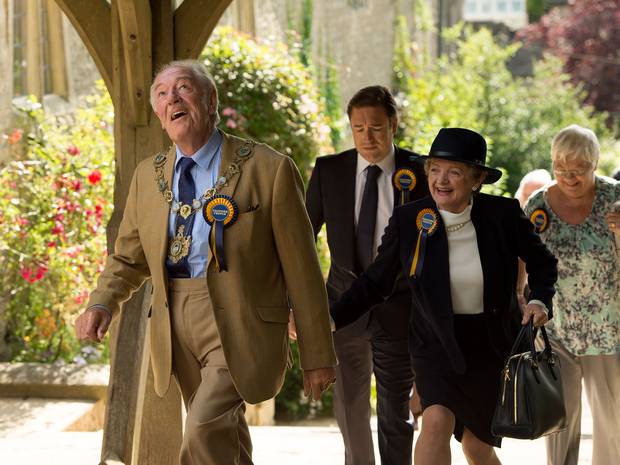 If all you knew about JK Rowling was that she wrote the Harry Potter books, you may find The Casual Vacancy to be a completely unexpected direction for the writer. Save for some eery dream sequences, this is an entirely magic-free story about a by-election in a sleepy rural town in England. Anyone who follows the author on Twitter, however, will be unsurprised by the knotty political plotting of her first venture outside of Hogwarts. The first ever person to drop off the Forbes billionaire list for giving so much away, an ardent labour supporter and head of the charity Lumos that protects children in dangerous situations, Rowling’s moral and social conscience has played a huge role in her life post-Potter. Highlighting small-minded English privilege at the cost of those in the most need, The Casual Vacancy occasionally feels like a sermon attempting to win you to her social cause that, while undeniably an important message, doesn’t make for consistently compelling entertainment.
If all you knew about JK Rowling was that she wrote the Harry Potter books, you may find The Casual Vacancy to be a completely unexpected direction for the writer. Save for some eery dream sequences, this is an entirely magic-free story about a by-election in a sleepy rural town in England. Anyone who follows the author on Twitter, however, will be unsurprised by the knotty political plotting of her first venture outside of Hogwarts. The first ever person to drop off the Forbes billionaire list for giving so much away, an ardent labour supporter and head of the charity Lumos that protects children in dangerous situations, Rowling’s moral and social conscience has played a huge role in her life post-Potter. Highlighting small-minded English privilege at the cost of those in the most need, The Casual Vacancy occasionally feels like a sermon attempting to win you to her social cause that, while undeniably an important message, doesn’t make for consistently compelling entertainment.
Pagford, the quaint town facing a council election at the centre of the series, is not dissimilar to Hot Fuzz‘s Sandford, immaculately preserved by a cabal of white middle class people but under threat from… commoners. Instead of murder, however, there are bitchy political machinations as the pinko lefties try and preserve a local building that serves the poorer residents of The Fields, a neighbouring estate, while Michael Gambon’s town mayor would rather sell it to developers seeking to make a luxury spa. The comparison to Hot Fuzz extends beyond the plot and setting, however, as the characters that populate the town are cartoonishly drawn, here to make a point as opposed to getting laughs. It’s an ensemble drama, juggling multiple strands over its three hour runtime and only satisfyingly resolving a few of them, and only really making an impact with the younger characters.
The most compelling storyline by some distance is that of Krystal, a schoolgirl whose life, without realising it, is affected by the decisions the council are fighting over. Played with exceptional nuance by newcomer Abigail Lawrie, Krystal’s story transcends the heavy-handed point-making that Rowling and screenwriter Sarah Phelps are using their characters for. The narrative ends up being cruellest to its poorest characters, which is presumably the point but nevertheless makes watching it like reading a series of Guardian columns; Lawrie’s performance elevates the material to keep the message real and tangible. The older, more experienced cast could learn a thing or two from her.




